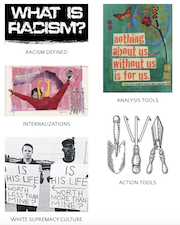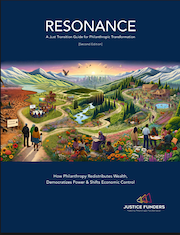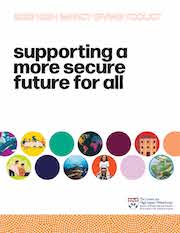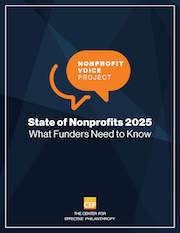Site Search
- resource provided by the Forum Network Knowledgebase.
Search Tip: Search with " " to find exact matches.
Join your peers to learn more about the Disability & Philanthropy Forum and the Disability Inclusion Pledge in a session facilitated by Sarah Napoli, Learning Services Director for the Forum. Current signatories will share their progress as pledge signatories and how the Disability & Philanthropy Forum can support your journey to implement accessibility in your work. This is a great opportunity to come with questions if you are interested in becoming a pledge signatory or are a current pledge member. This will also offer some informal learning on disability fundamentals and allow space for Q&A.
This session is a part of our Grantmaker Toolkit Series in collaboration with The Council of New Jersey Grantmakers, New York Funders Alliance, Florida Philanthropic Network, Wisconsin Philanthropy Network, Maryland Philanthropy Network, Philanthropy West Virginia, Grantmakers of Western Pennsylvania, Philanthropy Network of Greater Philadelphia, and the North Carolina Network of Grantmakers.
The Disability & Philanthropy Forum mobilizes philanthropy to dismantle ableism by increasing funding for disability inclusion, rights, and justice; amplifying the leadership of disabled people in the philanthropic sector; and educating philanthropy to build a culture of inclusion.
Speaker: Sarah Napoli is the learning services director at the Disability and Philanthropy Forum. From 2019-2023, she acted as the lead disability inclusion project officer within the people and culture Diversity, Inclusion, and Equity team at Open Society Foundations (OSF), where she developed and facilitated disability inclusion learning and embedded proactive disability inclusive practices throughout the global network. In addition to OSF, she has over 20 years of experience teaching and conducting training on social justice and advocacy in higher education and nonprofits, most recently as the director for the inaugural Center for Inclusion at Manhattanville College and as the assistant head of Goodricke College at the University of York, England. She specializes in facilitating engaging workshops and designing curriculum that challenge and encourage participants to foster a culture of inclusion.
She holds two MA degrees, one in social justice in intercultural relations from the SIT graduate institute and one in applied human rights from the University of York. She identifies as a proud disabled person and enjoys chatting about Geek culture—all things fantasy and sci/fi and her former life as a hip hop researcher and dancer. Her research on how hip hop creates human rights identities was recently published in the University of Michigan press text, For the Culture: Hip Hop and the Fight for Social Justice.
She has conducted workshops and training all over the USA and in the world, including Japan, Guatemala, throughout Europe, South Africa, and Canada. Click here to read Sarah’s story, “The Disabled Mindset: Embracing My Disability Identity.”
Cost: Free for CNJG Members; $50 for Non Member Grantmakers
Seeking ways to maximize the social and economic returns of their place-based impact investments, foundations, CDFIs, private investors, and others are turning to collaboration. To support these efforts and facilitate lesson sharing, the Urban Institute and Mission Investors Exchange have produced a set of three practitioner briefs designed to focus on elements of place-based impact investing that have surfaced in research and conversations with practitioners as opportunities for knowledge exchange: building strong ecosystems, mapping opportunities and capacities, and deploying capital on the ground together through impact investing collaborations. Each brief presents the concept, highlights practitioner examples, and elevates lessons from the field.




Nonprofit leaders identify the polarized and unpredictable political climate as one of their key challenges, posing risks to funding, organizational missions, and the communities they serve. This report analyzes survey responses from 585 nonprofit leaders, highlighting staffing difficulties, widespread burnout, and deep concern about future funding uncertainty and increasing costs.
In this report, the Colorado Trust and Innovation Network chronicle the Trust's strategy for funding advocacy and provide a strategic evaluation for their successes and failures.
